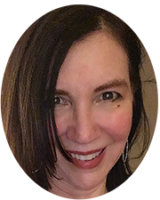

I want to thank you for exploring my blog, Kindness Redefined. I'm here to share my journey with kindness as a deep mindfulness practice to address oppression at every level. I know there are lots of choices of what to read online. Appreciate you are reading mine. ~Jamie
The more I read and reflect, the more I wonder “How can I be proud of white culture?’ My culture. You know, how can I do this as NOT a White Supremacist or Nationalist? How can I live in this culture in a white body, awake to injustice, and yet retain dignity and respect for people of other races? I found a couple of answers that said, “yes, you can.”
“How can I be proud of being a white woman and of my white culture and NOT be a White Supremacist?’
The first answer came from a recognizing the goodness in my personal heritage. Early in my life, I distanced myself from extended family to build a separate and different identity. My family system had taken care of my needs and offered me adventure as a child, but neglect and criticism, substance abuse and denial had prompted me toward soul-searching and redefinition. At seventeen I clipped my own roots and moved 1000 miles away and rewrote my story.
That story lacked extended family.
Right now a fresh question is emerging: ‘Are there wholesome ways my roots and extended family had shaped my white identity?’ Ways that could ground me in my own racial roots and identity. My maternal grandmother was a deeply kind, generous woman deeply rooted to her Christian beliefs and her loving presence offered me a role model. So I start there.
When I think my grandmother, I think of her kitchen. My grandparents had scraped a livelihood together working as caretakers for wealthy ranchers in rural Idaho. They tended the land, the horses and cattle of the wealthy in exchange for residence and modest pay. My grandfather managed a few hired men, worked long hours tending fences, herding cattle, and turned a profit for his employer. My grandmother managed their home and worked the kitchen. She tended the men: prepared three meals a day on a big wood-burning stove, cooked vegetables from the enormous garden she planted, canned fruit for the long winters, and made use of every scrap of food and fabric because they were precious and hard to come by in a life off-grid and hours from the nearest town.
This is cream I skimmed off the top of a lifestyle that was isolating, low-paying, and back-breaking.
My grandmother instilled values and skills in my tiny body. By age three I was standing on a chair at the sink washing potatoes and pitting cherries. I learned to value and prepare wholesome and tasty home grown and home cooked foods. I emerged with confidence and comfort in the kitchen and in my ability to withstand difficulty and maintain hope.
As a child I was left to my own devices a lot and I learned to be ingenious and solve problems with what I had. I learned about reuse and repurposing long before those ideas were trendy. I knew how to be part of a crew and I knew that everyone had something of value to offer. This is cream I skimmed off the top of a lifestyle that was isolating, low-paying, and back-breaking for my Grandparents. Their lives were fraught with interpersonal difficulty and physical danger. They were steeped in traditional gender roles and rarely expressed tenderness. My Grandmother believed in giving to those in need, she spoke kindly of others, and she treated animals and the Earth with practical respect. These are things I’m proud of. This part of my ancestry and it is a wholesome part of my White identity.
A second source of pride about being a white person is more emergent. I’m not sure I can call it pride yet, actually. It is arising from an expansive realization: I have the grit to envision and bring to life a version of being a white woman that represents my own heart and spiritual identity. Some of my power arises from rejecting and refusing white cultural expectations or actions that I find harmful or oppressive to myself or others.
I don’t believe white skin is superior. I don’t believe male gender identity is superior; younger is better; thinner is better; English is better. The stereotypes and rhetoric of my culture is my NOT my own personal truth. Mine is a belief that all of us a interconnected, equally deserving, susceptible to greed and fear, and all capable of profound kindness and compassion.
I want to live and study and speak and act my own values: I believe in human rights and dignity for all — no exception — in every moment under every condition. I believe it is possible to be honest and respectful; to hold people responsible with dignity; extend kindness and opportunity, safety and well-being to all. This is a lofty vision to hold as I try to exist among so many people who are so different in so many ways from me. But this reflects the kind of white person I am and this is the culture and world I want for myself and others. I will reject values that ask me to live otherwise.
Isn’t it time for a collective awaking to reject a status quo that binds white people to the capitalist values of profit over people and sacrificing our energy and integrity for [dreams and promises of] wealth? Isn’t it time we reject the actions and beliefs — subtle and extreme — of domination, one person over another, in whatever form it takes?
This is a white culture that would make me proud! It excites me and enlivens me to even dream it possible. It offers direction and purpose. Maybe I can connect to and co-create with others who also want to live as part of a white culture rooted in equity. White people don’t have to accept white supremacist values, actions, or beliefs just because that is the culture we inherited and were socialized into as children and workers. [Read here for a discussion of white supremacy culture in everyday interactions]. We can awaken and revise. We can accept the responsibility and obligation to forge a better culture and a better future.
And from this foundation of white identity, I can live and work and challenge, and resist racist, sexist, oppressive, greedy remnants of white supremacy culture. Isn’t it time for a collective awaking to reject the status quo that binds white people to the capitalist values of profit over people and sacrificing our energy and integrity for [dreams and promises of] wealth? Isn’t it time we reject the actions and beliefs — subtle and extreme — of white dominance and superiority in all its forms? Could we join and commit to dismantling our internalized oppression and reclaim righteous power through honest voice, courageous fight, and dedication to a world that takes care of everyone?
I am. I want to try anyway. I don’t think there is anything more urgent or decent. Join me. Let us become the best we can be and make amends for a long legacy of harm done by white people.
Share this post
Jamie is a psychologist, mindfulness teacher, college professor & writer. She is dedicated to healing, truth, and creating a just and inclusive world.
Her blog, Kindness Redefined, chronicles her exploration of deep versions of kindness & respect as a lens on power, social inequity, & mindfulness.

